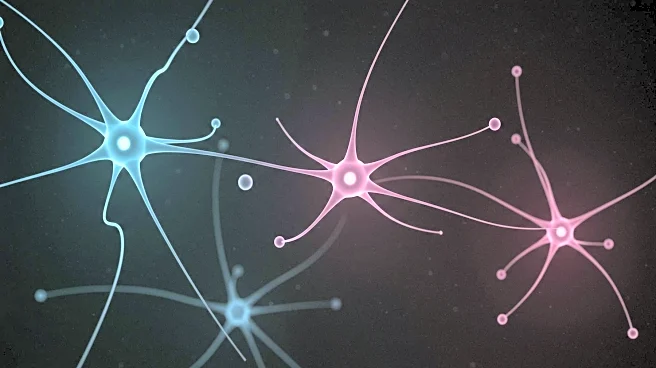What's Happening?
Researchers at Cardiff University's Centre for Neuropsychiatric Genetics and Genomics have discovered eight new genes associated with schizophrenia. This breakthrough was achieved through the largest exome-sequencing study of the disorder to date, involving genetic data from 28,898 individuals with schizophrenia, 103,041 without the condition, and 3,444 families affected by the disorder. The study identified two genes, STAG1 and ZNF136, with strong genetic evidence linking them to schizophrenia, while six other genes showed moderate evidence. The findings suggest that schizophrenia may be linked to changes in DNA organization within cells and disruptions in brain cell communication using GABA, a chemical neurotransmitter.
Why It's Important?
The discovery of these genes is significant as it enhances the understanding of schizophrenia's complex neurobiology, potentially guiding future drug development and targeted therapies. The research also highlights shared genetic roots between schizophrenia and other neurodevelopmental conditions, such as autism and epilepsy, which could lead to broader implications for treatment strategies across these disorders. By expanding the number of genes associated with schizophrenia, the study provides a blueprint for future research aimed at uncovering specific disease mechanisms, offering hope for improved treatment options.
What's Next?
The findings pave the way for further research into the specific disease mechanisms underlying schizophrenia. While translating these genetic discoveries into treatments remains a long-term goal, the results offer new hope for guiding drug development and targeted therapies. Researchers will likely focus on understanding how these genetic mutations affect brain function and contribute to schizophrenia, potentially leading to more effective interventions.
Beyond the Headlines
The study strengthens the case for shared genetic roots between schizophrenia and other neurodevelopmental conditions, suggesting that genetic research could lead to broader insights into mental health disorders. This could have ethical implications for genetic testing and personalized medicine, as well as cultural impacts on how society understands and addresses mental health.








